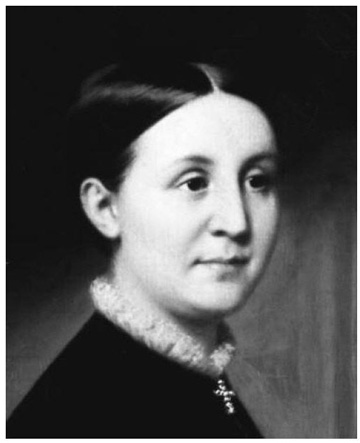
It was women and men that created the first resistance to industrialization's injustices.They lead the fight against powerful interests of the textile mills,banking and the Massachusetts State Legislature in the late 1840's.Sarah G.Bagley was the lead voice for a ten hour work day that was rejected by a Massachusetts State Legislative committee who deemed intervention inappropriate because it would hurt the ability of industrialists to compete with mills in other states not burdened with such mandates(sounds like globalization today).The committee also proclaimed that matters relating to hours and wages were not the state's business but private issues to be resolved between the workers and the company(positions never seem to change).Sarah G.Bagley had a touch of "Lowell fever""when she first went to work at the textile mills in Lowell,Massachusetts in 1837.Many young women flocked to Lowell to earn money(at their home farms they worked long hours for free),peek at a wider world,participate in an under-graduate type education,attend lectures and meet like minded people.She wrote two stories for the"Lowell Offering",an independent literary journal,which was published by female mill workers that celebrated American factory life.Bagley wrote about the mill girls' wages assisting distant relatives,the exposure through the lyceum lectures of Emerson and John Quincy Adams and the broadening experience of meeting women from other states and towns.
The rosy picture of Lowell began to fade when the workplace became a vehicle for oppression and avarice.The young women began to have less time for intellectual experiences due to the long,arduous,unhealthy working environment.The work became a life condition instead of a transitory stage for young women who wanted more time the enjoy their labor.It was a permanent, fixed predicament without any light for increased prosperity.Most women worked fourteen hours a day in unsafe conditions and were restricted by the employers on their off hours.Their wages were also cut when economic conditions decreased company revenues.The mill workers tried to gain better working conditions in 1834 and 1836 before Bagley arrived at Lowell but were unsuccessful.By the mid-1840's,Bagley's views were hardening and she wrote and edited the "Voice of Industry",a labor periodical she wrote for that openly mocked visitors that toured the mills(provided by management) and compared them to factories in England.The "Voice" warned that the whole system of factory labor was unnatural,oppressive and unjust.
Sarah G.Bagley emerged as the leader for the ten-hour day in the mid 1840's.She created the Lowell Female Labor Reform Association,a branch of the New England Workingman's Association, in 1844.She gathered with workmen in Boston in 1845 and gave a speech(very unusual) supporting their union and telling them of the women's solidarity and equality in the fight against unjust working conditions.The plea for reasonable hours of work struck directly at the question of weather the wealth created by industry was truly to be shared,and revived the debate that had prevailed in the early years of the republic as to whether industrialization would be a more just and equitable affair in America than abroad.In 1828,the Mechanics' Union of Trade Association(Philadelphia) was formed to fight for the ten-hour day.By 1835,Philadelphia established a ten-hour day for municipal workers.Five years later,all federal employees had the same ten-hour work day. Unfortunately,the factories of industry had a harder road to ride.The "Voice of Industry" called for a general turn-out on July 4th,1846.She campaigned against the longer hours in Pittsburgh,Manchester,Lowell and many other factory towns.Bagely's group submitted a petition of a thousand names of Lowell workers to the state legislature for help.The petitions proved historic because it was the first legislative hearings ever conducted in America to examine the conditions of labor.The committee listened to reports of fourteen hour workdays,short breaks for meals,standing on their feet all day side by side,noxious atmosphere,airborne dust,smoke filled rooms from whale oil and windows nailed shut. The committee eventually rejected the complaints because it would hurt Lowell's competitive marketplace requirements and the conditions were better than England.Bagley interpreted the rejection as a rebuff to female workers because they didn't vote and have any political clout.She stated"your sapient heads are very busy in forming laws to protect,uphold and upbuild the rich(sound familiar).Eventually,Bagley's won the ten-hour battle but not before 1874 in Massachusetts.The surrounding states reluctantly produced some version of the ten-hour day in the 1850's.
More from "There Is Power In A Union" from Dray next post.
No comments:
Post a Comment